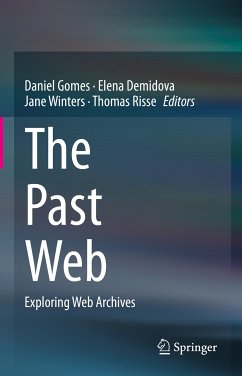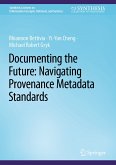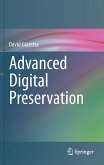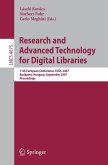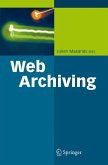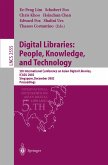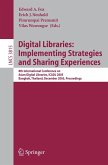This book provides practical information about web archives, offers inspiring examples for web archivists, raises new challenges, and shares recent research results about access methods to explore information from the past preserved by web archives.
The book is structured in six parts. Part 1 advocates for the importance of web archives to preserve our collective memory in the digital era, demonstrates the problem of web ephemera and shows how web archiving activities have been trying to address this challenge. Part 2 then focuses on different strategies for selecting web content to be preserved and on the media types that different web archives host. It provides an overview of efforts to address the preservation of web content as well as smaller-scale but high-quality collections of social media or audiovisual content. Next, Part 3 presents examples of initiatives to improve access to archived web information and provides an overview of access mechanisms for web archives designed to be used by humans or automatically accessed by machines. Part 4 presents research use cases for web archives. It also discusses how to engage more researchers in exploiting web archives and provides inspiring research studies performed using the exploration of web archives. Subsequently, Part 5 demonstrates that web archives should become crucial infrastructures for modern connected societies. It makes the case for developing web archives as research infrastructures and presents several inspiring examples of added-value services built on web archives. Lastly, Part 6 reflects on the evolution of the web and the sustainability of web archiving activities. It debates the requirements and challenges for web archives if they are to assume the responsibility of being societal infrastructures that enable the preservation of memory.
This book targets academics and advanced professionals in a broad range of research areas such as digital humanities, social sciences, history, media studies and information or computer science. It also aims to fill the need for a scholarly overview to support lecturers who would like to introduce web archiving into their courses by offering an initial reference for students.
Hinweis: Dieser Artikel kann nur an eine deutsche Lieferadresse ausgeliefert werden.
The book is structured in six parts. Part 1 advocates for the importance of web archives to preserve our collective memory in the digital era, demonstrates the problem of web ephemera and shows how web archiving activities have been trying to address this challenge. Part 2 then focuses on different strategies for selecting web content to be preserved and on the media types that different web archives host. It provides an overview of efforts to address the preservation of web content as well as smaller-scale but high-quality collections of social media or audiovisual content. Next, Part 3 presents examples of initiatives to improve access to archived web information and provides an overview of access mechanisms for web archives designed to be used by humans or automatically accessed by machines. Part 4 presents research use cases for web archives. It also discusses how to engage more researchers in exploiting web archives and provides inspiring research studies performed using the exploration of web archives. Subsequently, Part 5 demonstrates that web archives should become crucial infrastructures for modern connected societies. It makes the case for developing web archives as research infrastructures and presents several inspiring examples of added-value services built on web archives. Lastly, Part 6 reflects on the evolution of the web and the sustainability of web archiving activities. It debates the requirements and challenges for web archives if they are to assume the responsibility of being societal infrastructures that enable the preservation of memory.
This book targets academics and advanced professionals in a broad range of research areas such as digital humanities, social sciences, history, media studies and information or computer science. It also aims to fill the need for a scholarly overview to support lecturers who would like to introduce web archiving into their courses by offering an initial reference for students.
Dieser Download kann aus rechtlichen Gründen nur mit Rechnungsadresse in A, B, BG, CY, CZ, D, DK, EW, E, FIN, F, GR, HR, H, IRL, I, LT, L, LR, M, NL, PL, P, R, S, SLO, SK ausgeliefert werden.
Hinweis: Dieser Artikel kann nur an eine deutsche Lieferadresse ausgeliefert werden.
The Past Web: Exploring Web Archives has become an important part of the web archiving field. It is one of the most important sources in recent years. This book brings together recent academic studies on web archives and presents different information on how web archivers and researchers can benefit from and access web archives through case studies." Aykut KAYA, Bursa Uludag University, Prof. Dr. Fuat Sezgin Central Library.
Es gelten unsere Allgemeinen Geschäftsbedingungen: www.buecher.de/agb
Impressum
www.buecher.de ist ein Internetauftritt der buecher.de internetstores GmbH
Geschäftsführung: Monica Sawhney | Roland Kölbl | Günter Hilger
Sitz der Gesellschaft: Batheyer Straße 115 - 117, 58099 Hagen
Postanschrift: Bürgermeister-Wegele-Str. 12, 86167 Augsburg
Amtsgericht Hagen HRB 13257
Steuernummer: 321/5800/1497
USt-IdNr: DE450055826
Bitte wählen Sie Ihr Anliegen aus.
Rechnungen
Retourenschein anfordern
Bestellstatus
Storno

